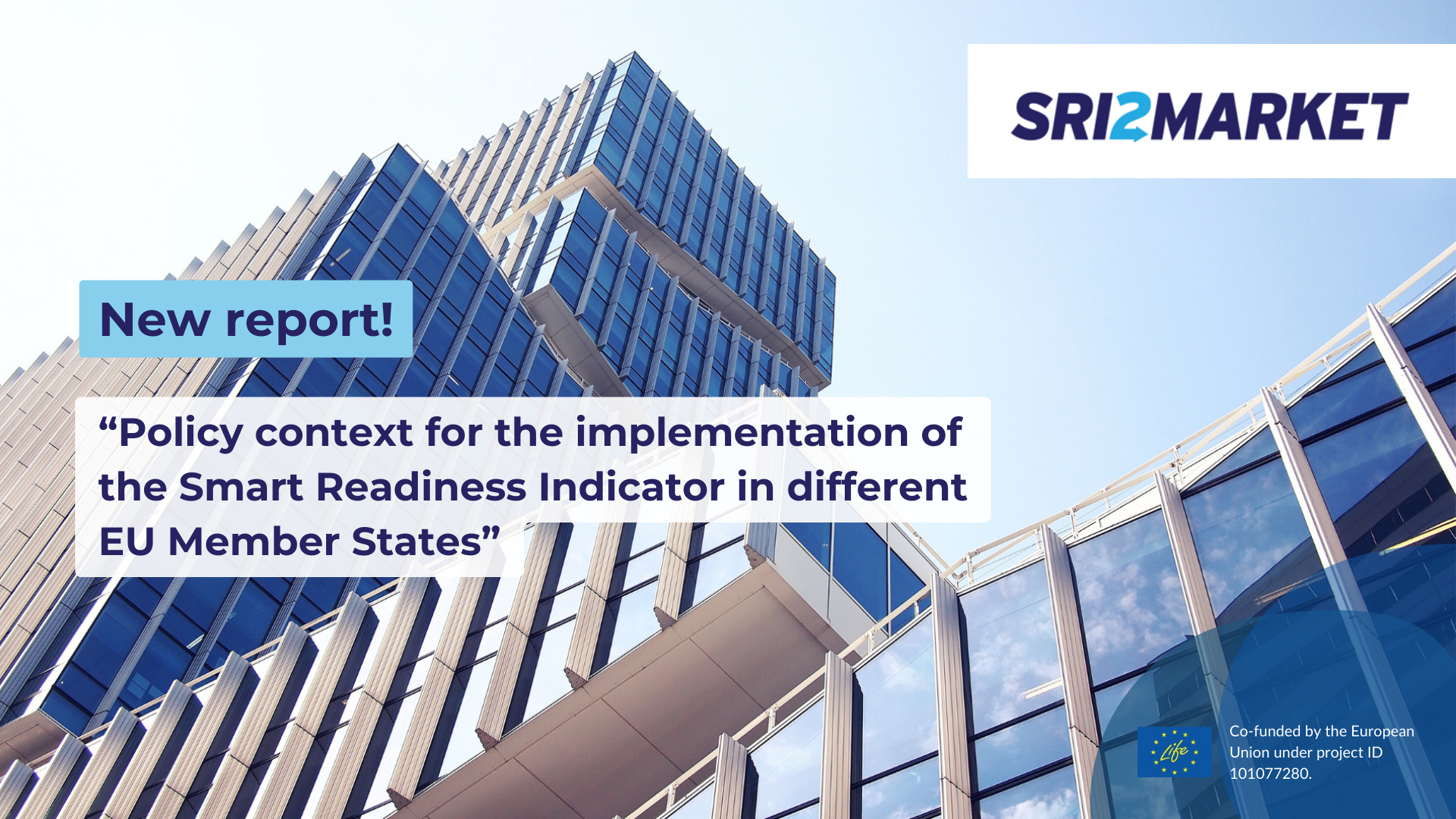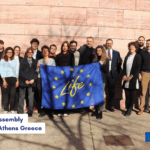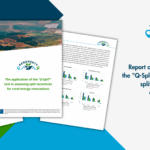A new report on “Policy context for the implementation of the Smart Readiness Indicator in different EU Member States” developed within the context of the EC’s funded SRI2MARKET project is now released.
This report analyses the level of integration of smart technologies in EU’s building sector and explores the progress of implementation of the SRI in six European countries, namely Austria, Croatia, Cyprus, France, Portugal, and Spain. In particular, considering the status of smart technology integration into the EU’s building stock, the study examines recent directives, recommendations, and policy documents at the EU level in order to identify the main policy directions and objectives that aim to leverage the integration of smart technologies into buildings.
Moreover, in order to gain a deeper understanding of the policy contexts inside the targeted Member States (MSs), the study employs a multi-method approach involving desk research and consultation with national stakeholders of the energy and building sectors. Based on these insights, a thorough analysis known as SOAR (Strengths, Opportunities, Aspirations, and Results) is conducted to investigate the progress of implementation of the SRI in each MS.
The results indicate that the complexity of the service catalog of the SRI and its functionality levels are among the main challenges MSs are facing along with the absence of climate-specific characteristics. While, on the other hand, MSs identify the integration of the SRI with other instruments such as the Energy Performance Certificates and synergies with other technologies such as smart meters and building automation and control systems as key opportunities to facilitate its implementation. Overall, the study aims to inform policymakers at national and EU level.
The full report is available here.
For more information about SRI2MARKET visit the project’s website.







